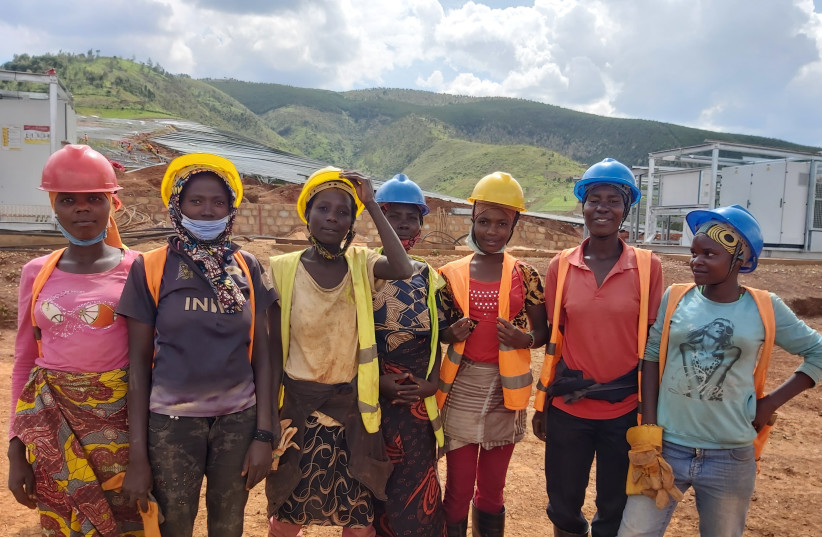Burundi inaugurated its first solar field this week, with the help of Israeli-American-Dutch renewable energy developers Gigawatt Global.
The MW solar PV plant in the landlocked African country in the Great Valley Rift was part of a multinational effort and increased Burundi’s generation capacity by 10%.
A first substantial energy generation project in three decades and the largest private investment in Burundi’s energy sector in 30 years, the solar plant is now supplying clean power to tens of thousands of homes and businesses.
Gigawatt Global, an American-backed Dutch company with offices in Jerusalem, is headed by American-Israeli CEO Yosef Abramowitz. The company worked with many public and private partners worldwide to advance the project.
Funding for the project came from pan-African investor Inspired Evolution, the UK government-funded Renewable Energy Performance Platform and Gigawatt Global, and the US International Development Finance Corporation refinanced the construction loans.

“Today’s launch of Burundi’s first grid-connected solar farm will light up the nation’s energy system,” said Greg Hands, the UK Minister for Energy, Clean Growth and Climate Change. “It will strengthen the national grid supply and propel forward a promising future for the country in clean, green energy.
“Set to increase Burundi’s power generation capacity by 10%, this pioneering project, backed by UK government funding, is a fantastic example of countries working together ahead of COP26. Investing in a green future benefits the economy and the planet.”
Additional support for the construction was provided by Finland’s, the UK’s and Austria’s Energy and Environment Partnership and Belgian’s Investment Company for Developing Countries. Engineering and construction services were provided by Voltalia.
“We thank our impact investors and strategic partners, as well as the Burundi government, for joining forces to accomplish this historic milestone on the road to climate justice and fulfilling many of the UN’s Sustainable Development Goals,” said Gigawatt Globals’ Abramowitz.
“Green energy projects that serve the most vulnerable communities should be prioritized by the international community.”
Gigawatt Global is also working on a community center powered by solar energy that will provide access to productive use of electricity. The center will focus on women empowerment, youth employment and education developed by NGOs.
The company inaugurated sub-Saharan Africa’s first utility-scale solar field in Rwanda in 2014. It is active in renewable-energy projects in 10 African states.
Eytan Halon contributed to this report.
